
BizTalk Server’s core capabilities are to process the messages between distributed systems within an organization or with external sources like trading partners etc. EDI comes into the picture when exchanging messages between two parties with an agreed EDI Schema format. EDI (Electronic Data Interchange) is the platform to process data in a common format between trading partners. Globally, larger enterprises adopt the EDI to exchange messages amongst the business units or with partners.
Trading partner management in BizTalk Server manages the party, profiles, and agreements. These entities are used in EDI message transactions. TPM is responsible to manage and preserve the information about partners(parties) and their business information(profiles).
BizTalk Server supports Electronic Data Interchange message processing and AS2 data transport. These message processing are handled by two protocol settings
Electronic Data Interchange supports two types of encoding protocols.
X12 Protocol: This type of protocol setting is used to process the message in ANSI format.
EDIFACT Protocol: EDIFACT protocol is used in United Nations rules (EDI for Administration, Commerce, and Transport).
As we discussed, to manage the EDI parties, profiles and agreements BizTalk360 users must switch to BizTalk Admin Console. It’s a cumbersome task for users to switch back to multiple tools to manage the Parties & Agreements and view the EDI Transactions.
It’s a long pending request and we have implemented the managing capabilities for the EDI parties and agreements in the latest version of BizTalk360 v10.4. EDI Parties & Agreements are supported by BizTalk Server Version 2013 R2, BizTalk Server 2016, and BizTalk Server 2020.
BizTalk Admin Console has a few challenges in managing EDI Parties and Agreements. A couple of important capabilities which are missing in the BizTalk admin console are
In the BizTalk Admin console, the users are allowed to create and view the parties and agreements out of their business scopes like other departments, and business units. The users who can access the admin console can access all the parties. There is no protection to data or avoid unauthorized persons to view or modify the parties & agreement’s information. BizTalk360 handles those challenges by applying the EDI Parties & Agreements user access policies.
There are two permissions used to manage the EDI Parties
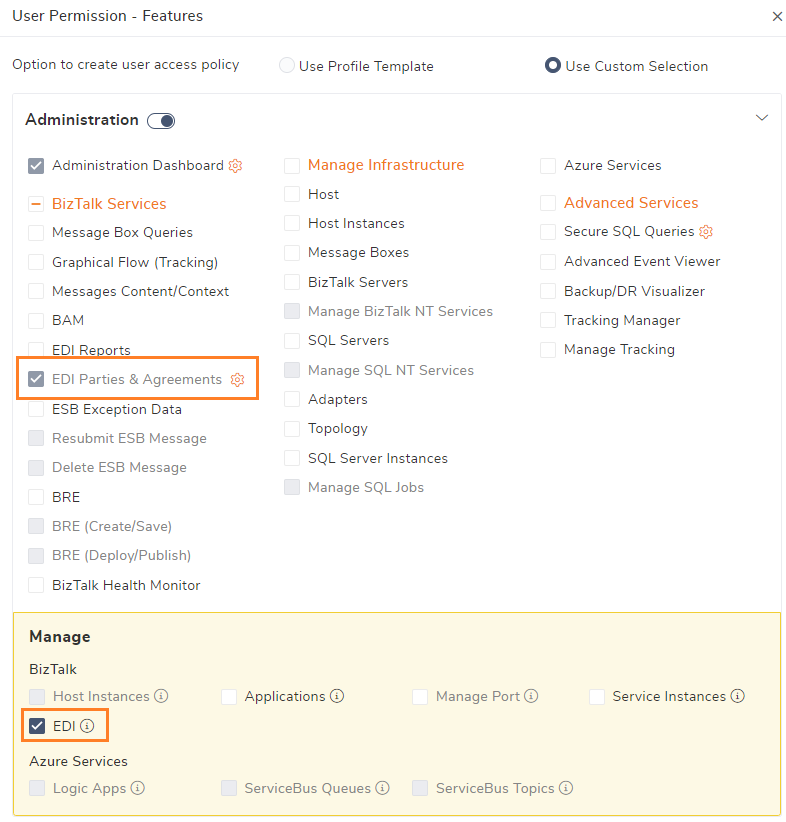
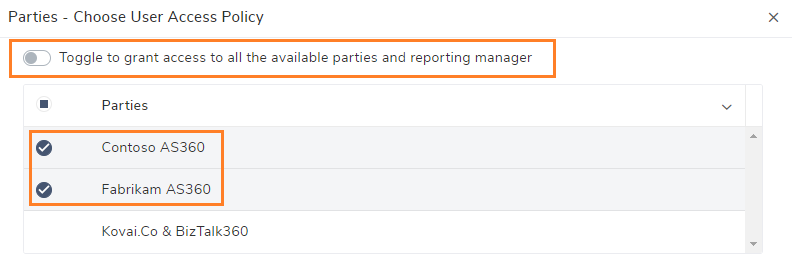
Manage EDI parties, profiles and agreements section covers the capability for auditing the operation activities in the latest version of BizTalk360. Governance Audit helps the user to track the properties that are modified in parties & agreements.
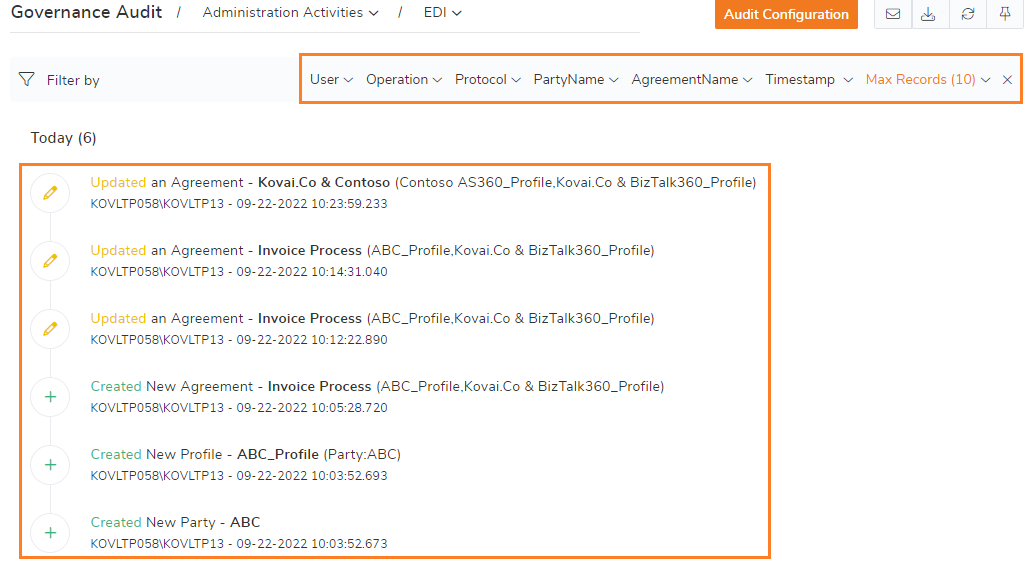
This new feature has brought the capability to manage the EDI parties and agreements from BizTalk360 with user access permission and governance audit. New Parties & profiles are created from the Parties & Agreements under EDI –>BizTalk Services –> Administration section.
Manage party
Creating the new party with Party name, additional properties and Send Port associated with trading transactions and certificates. Similarly, in the edit mode, the details are modified.
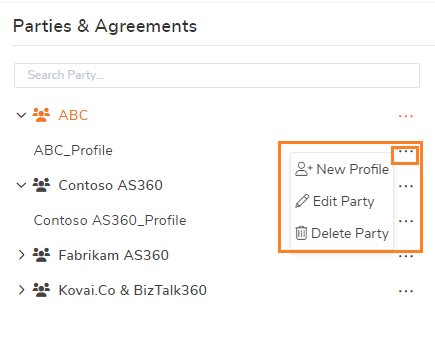
Manage Profiles
Party profiles are added to the selected party from the context menu. Multiple profiles can be associated with the party.
Note: These transactions are captured in the governance audit section.
Fallback Settings
Fallback settings of EDI Protocols are managed from BizTalk360
BizTalk EDI Agreement creation, edit and delete operations are allowed to permitted users.
X12 agreement can be created with Interchange settings, Transaction settings and two-way agreement with batch configuration. Under the Interchange settings à Identifiers, Acknowledgements (MDN), Envelopers, Character set and separators, Local Host Settings, Batch Configuration and Send Ports details are managed.
EDI Schemas
There are predefined EDI Schemas available for the different purpose of transactions. Transaction Settings, supports different schemas for the transactions like Shipment, Order Processing (Purchase Order, Invoice) etc.,
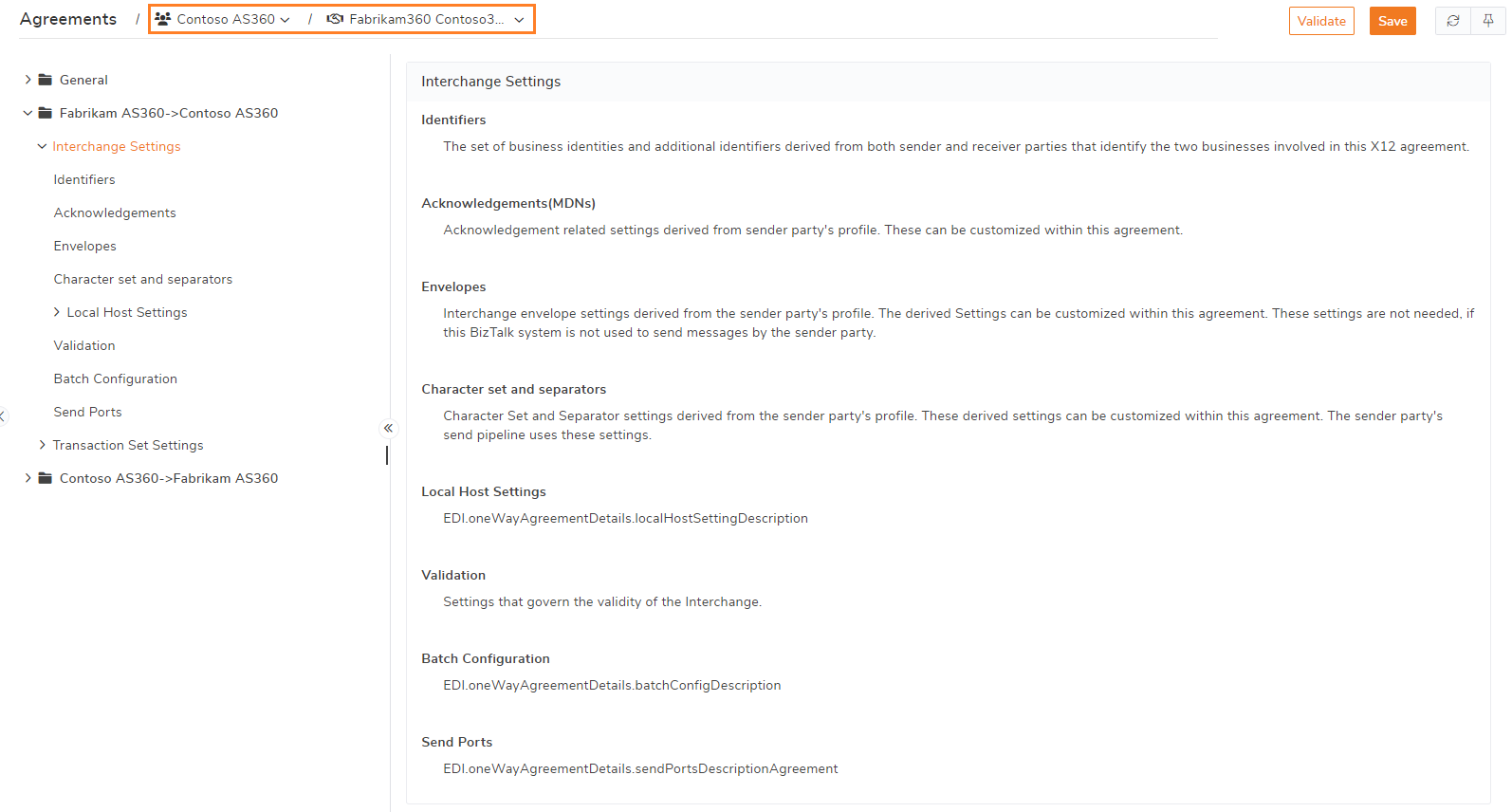
Batch Configuration
In EDI X12 Batch configuration, schedule and trigger the batches like in BizTalk Admin Console.
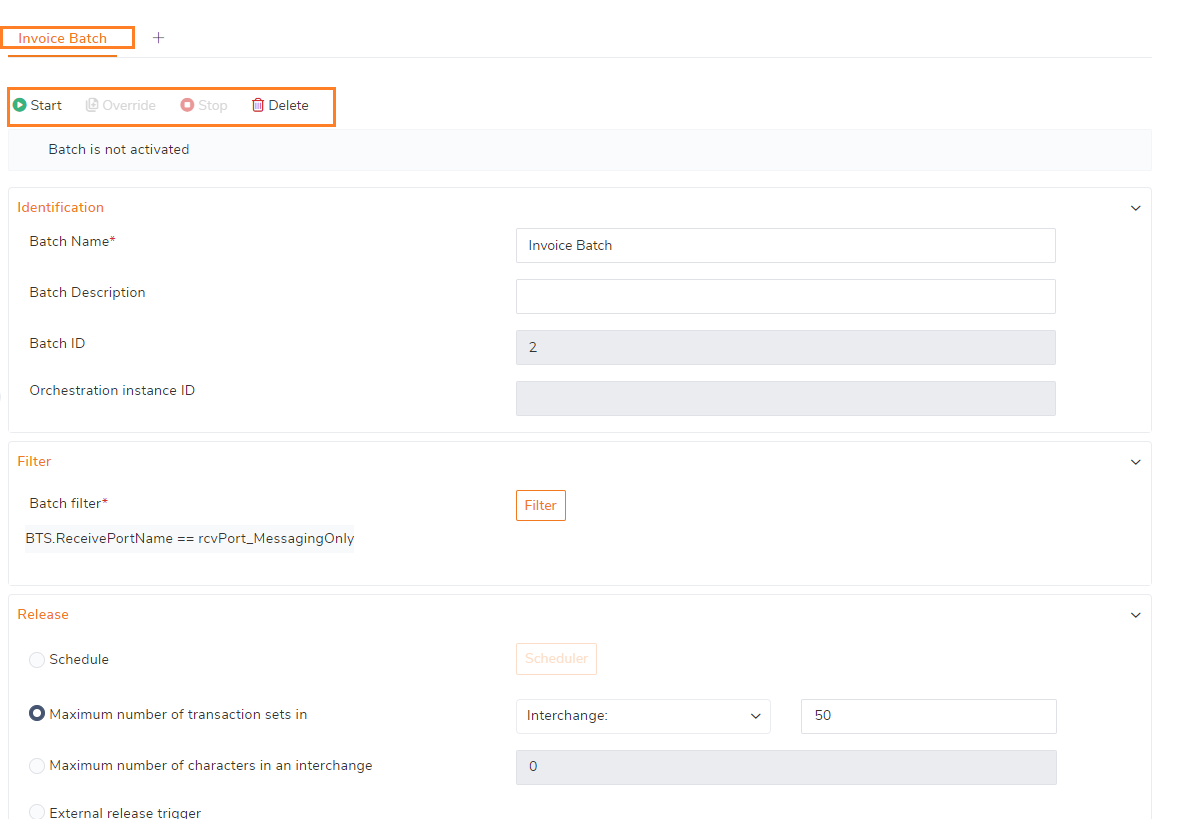
As with X12 Agreement, the user can manage the EDIFACT (EDI for Administration, Commerce and Transport) Interchange settings with batch configurations and Transaction Settings
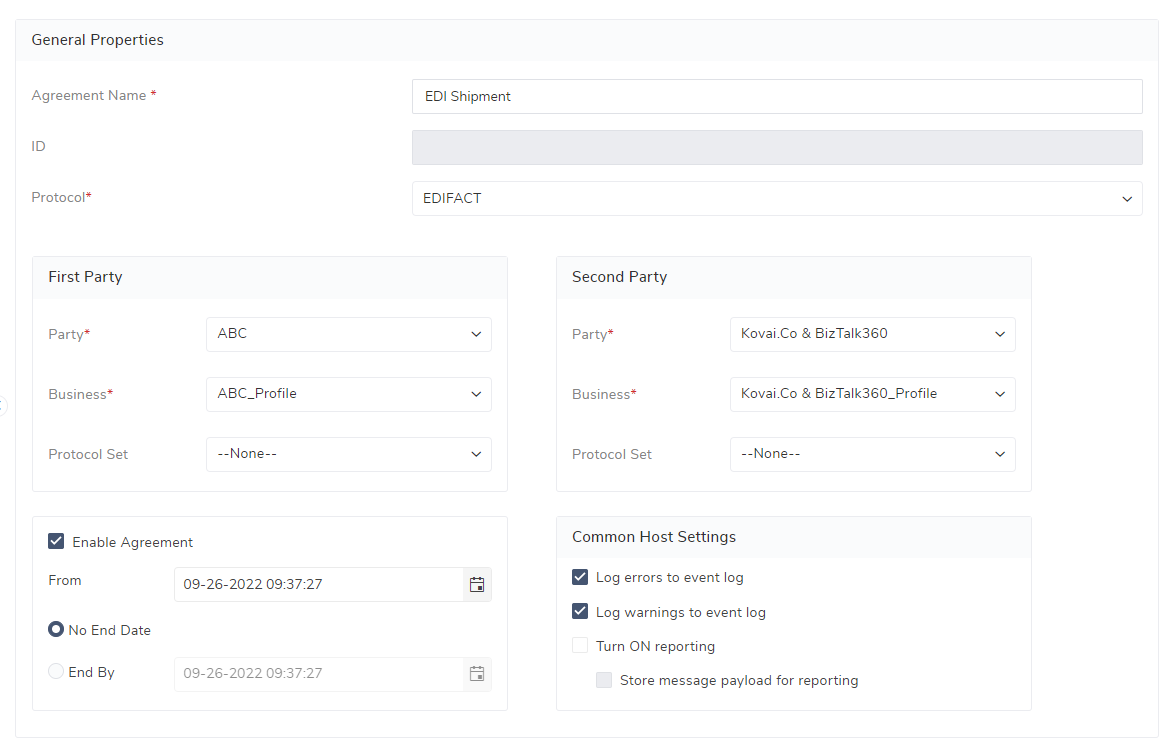
AS2 is the HTTP transport protocol, that manages the agreement’s general properties, contact and additional information. Two-way agreement protocol configuration à Identifiers, Validation, Local Host Settings (Receiver MDN, HTTP Settings for Messages and MDN, NRR – Receiver/Sender Messages Tracking), Agreement signature certificate and Send Ports).
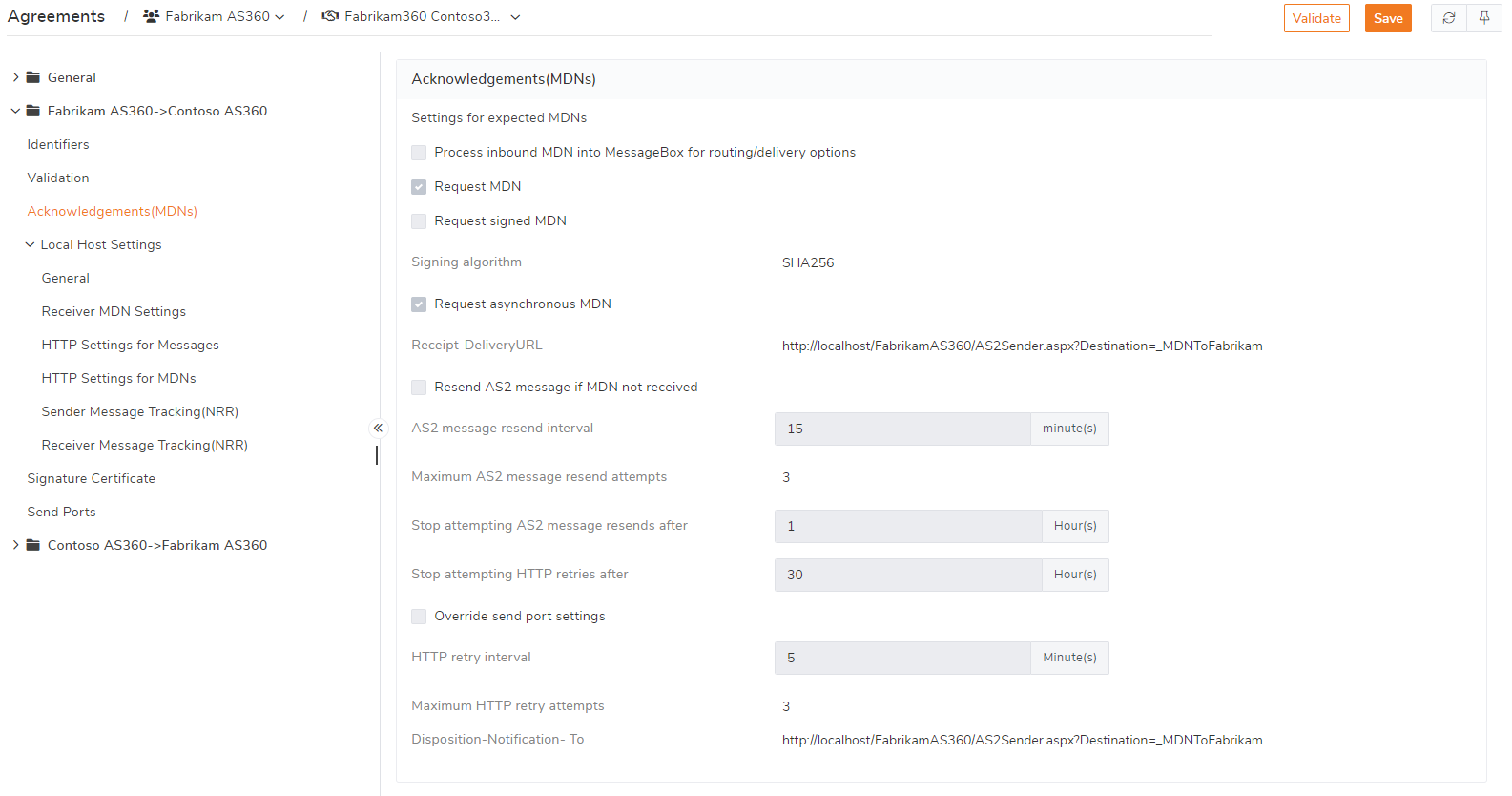
BizTalk360 is one stop tool for BizTalk Server to administrate the BizTalk Artifacts, monitor the health of the BizTalk environment and get Analytical data from BizTalk Servers in the BizTalk group. In BizTalk360, EDI Status Reports are available in the Administration section. In addition to this feature, the following EDI capabilities are useful to manage the EDI transaction better.
Functional ACK Status
Interchange/ACK Status report only indicates the status of technical acknowledgment. To know the details about functional acknowledgment this feature will be helpful to determine in EDI Status Reports. Monitoring the functional ACK status is accomplished in the data monitoring feature.
EDI Dashboard
This feature provides insights about EDI message interchanges and AS2 message transactions with the in-built widgets. Users can create multiple EDI dashboards to visualize the message transactions based on business needs.
EDI Reporting Manager
Reporting manager provides the consolidated view to manage the EDI reporting configurations. In addition to reporting configuration, NRR – Sender/Receiver message tracking can handle the reporting in a single view.
Managing BizTalk EDI parties and agreements in BizTalk360 helps to fulfill the gaps between BizTalk Server and BizTalk360. The additional features in EDI with security (user access policies) and Governance & Audit make the EDI capability in BizTalk360 more powerful. If you want to try out the BizTalk360 download the MSI.
We have always heard feedback from users, if you have any, submit it in the BizTalk360 feedback forum.